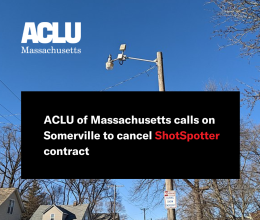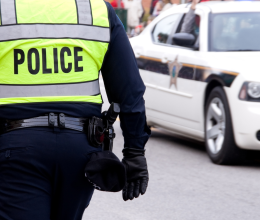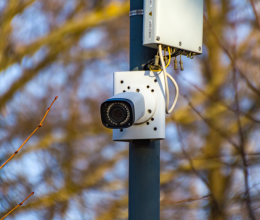
As reported today in the Boston Globe, documents obtained thanks to an American Civil Liberties Union of Massachusetts public records request to the Boston Police Department have revealed that the department has never obtained a warrant before using highly invasive cell phone tracking equipment known as a “Stingray.” A Stingray acts like a cell phone tower, allowing law enforcement agencies to intercept private communications.
The Boston Police Department’s records show its “current” Stingray has been deployed at least 19 times—9 times in BPD investigations and 10 times on loan to other law enforcement agencies. Over half—at least 10 out of 19—of these deployments were in drug investigations.
Even though BPD has publicly claimed it requires its officers to get a warrant to conduct Stingray surveillance, the documents officials provided in response to our public records request show they have never done so. Instead, in each of the nine documented cases in which the department used a Stingray during a BPD investigation, they relied on an exception to the warrant requirement, known as “exigent circumstances,” or the “emergency exception.” The emergency exception to the warrant requirement is meant to be just that – something that is used only in true emergencies, such as when human life is imminently endangered. But when it comes to Stingrays and the BPD, the exception seems to have become the rule.
"Government secrecy about Stingray surveillance doesn’t protect public safety," said Jessie Rossman, staff attorney at the ACLU of Massachusetts. "Instead, secrecy allows government agencies to keep their use of the highly invasive spy tool out of the court system and hidden from the public."
Based on available information, it is impossible to evaluate the underlying circumstances of the cases in which the BPD used its Stingray. The BPD only provided three sparse incident reports, which are insufficient to show whether or not the emergency exception to the warrant requirement legitimately applied in each case. In the six other cases in which the department has admitted using a Stingray without a warrant, the BPD provided no official documentation that would allow the public to judge whether the emergency exemption was properly invoked.
BPD's use of its Stingray seems to occur in a broader context of secrecy around these controversial devices. In 2015, the ACLU of Massachusetts learned that the BPD had signed a non-disclosure agreement with the FBI requiring them to alert the FBI before disclosing any information about its Stingray technology to the public, criminal defendants, or courts.
Courts, however, have already begun to reject this secretive approach. Within the past five months, both a Maryland Appeals Court and a New York federal judge ruled evidence inadmissible because agents had discovered it by using Stingray cell phone surveillance without a warrant. These courts ruled that this Stingray surveillance constitutes a search that triggers Fourth Amendment protection, and therefore requires a probable cause warrant.
"Going forward, the Boston Police Department must be more transparent with the public, criminal defendants, and courts about its use of Stingrays and other high-tech surveillance tools," said Kade Crockford, director of the ACLU of Massachusetts Technology for Liberty Project. "Only then can we ensure the police aren’t violating our rights by misusing or abusing this powerful technology."
Click here for more information about the BPD Stingray documents that the ACLU obtained.





